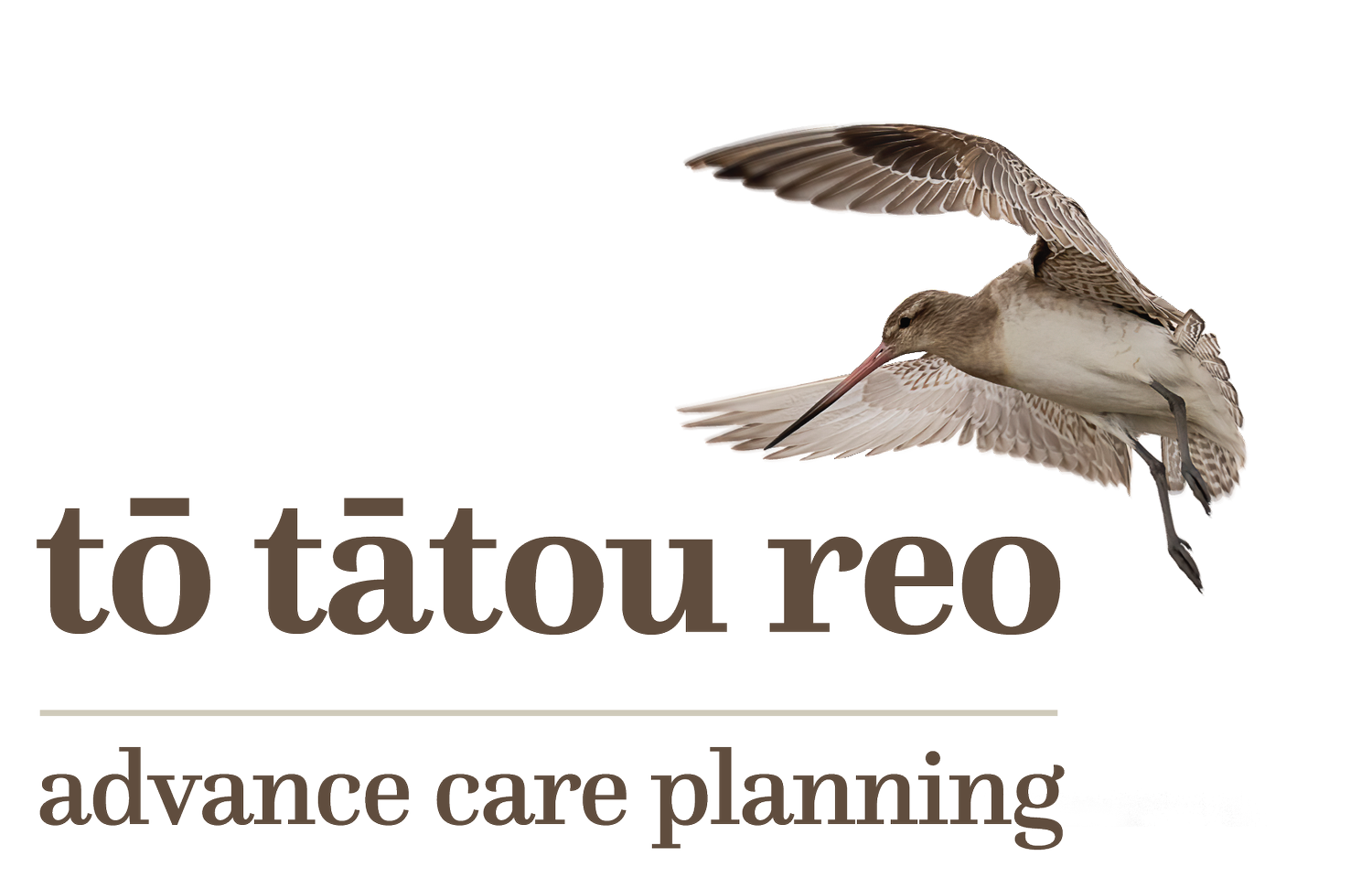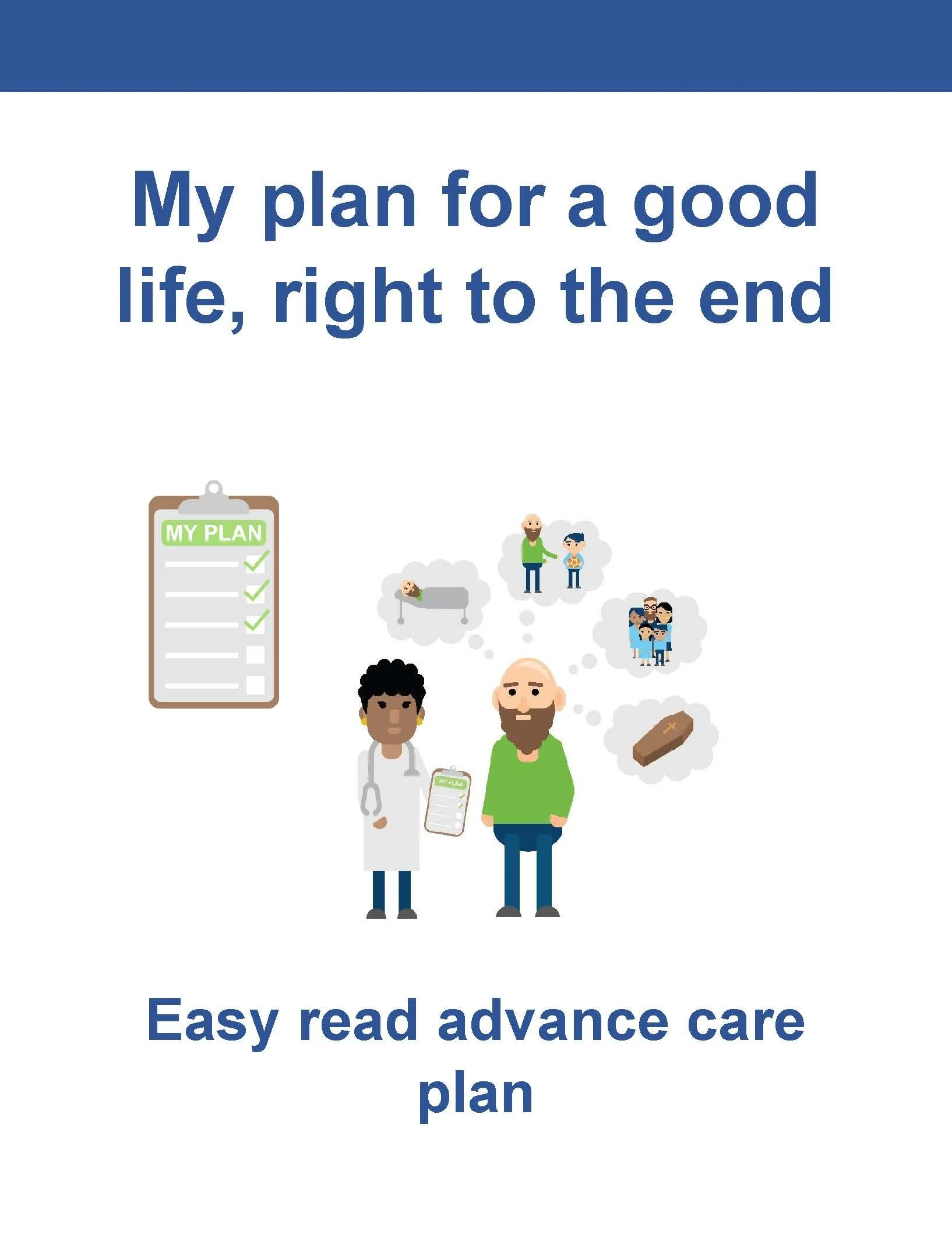Helping people with learning disabilities navigate end-of-life care
For the first time in Aotearoa New Zealand, people with learning (intellectual) disabilities will have a way to communicate about the care they want towards the end of their lives.
Tō tātou Reo advance care planning is excited to share Dr Nic McKenzie’s My plan for a good life, right to the end – an Easy Read advance care plan for people with learning disabilities – and guidebook for supporters.
My plan for a good life right to the end (myacp.org.nz)
Helping people make choices
Dr Nic McKenzie has a passion for helping people communicate and make choices.
Nic’s passion for helping people communicate and make choices comes from working as a speech and language therapist early in her career. She has since spent more than 25 years working in various roles with people with learning disabilities and those who support them.
‘I developed an interest in aging and end of life, with a particular focus on how to ensure people are supported to make their own choices. Advance care planning fits perfectly with this,’ she said.
People weren’t told they were dying
During a project with the IHC Foundation on what successful aging looked like for people with disabilities, Nic realised there was no real way within the health sector to find out what kind of care people with intellectual disabilities wanted for the end of their lives.
‘We knew what disability service providers needed in order to provide end-of-life care but nothing about what people with learning disabilities themselves wanted. We identified a great big hole,’ she said.
Nic began to research how to adapt advance care planning to fill that gap for people with learning disabilities. As part of this work, she discovered that most people with learning disabilities weren’t actually being told they were dying, denying them of the opportunity to tell people what they wanted.
‘Just like anybody else, people with learning disabilities understand death and dying and have opinions on what they would like to happen. When we don’t talk about it with them, we take those choices away.’
It was coming from a good place. Supporters and whānau were worried that people with learning disabilities wouldn’t cope, or be able to understand, if they heard they were going to die.
In actuality there has been some great research that shows, for most people with learning disabilities, this isn’t the case,’ she said.
‘Just like anybody else, people with learning disabilities understand death and dying and have opinions on what they would like to happen. When we don’t talk about it with them, we take those choices away.’
The co-researchers
This made Nic want to examine how to adapt advance care planning so that it could be a point of entry for people with learning disabilities to talk about death and dying.
Acting as guide and facilitator, she brought together a co-research group of seven older people (aged from mid 40s to early 90s) with learning disabilities, managers from disability support services and supporters.
Together they examined what advance care planning looks like in its current form, whether it would work for people with learning disabilities and what would make it better.
‘The co-researchers felt strongly that they needed a more accessible advance care plan template to help them understand their options and share their wishes,’ she said.
Great outcomes
Nic and the co-researchers developed an advance care plan in Easy Read format (a way of presenting written information to make it easier to understand) and a guidebook to help those who may be supporting people with learning disabilities to develop their advance care plan.
It had great outcomes for the people who tested and trialled it, she said. Their plans were accepted by health providers and able to be uploaded to their health records.
‘Health providers, family members and supporters were blown away by some of the things that people noted in their plans. It really challenged assumptions about what people with learning disabilities were capable of.’
‘Family and whānau found it cathartic and a helpful thing to have done. It actually helped them talk about other things like family members dying that they hadn’t been able to talk about before.’
‘Health providers, family members and supporters were blown away by some of the things that people noted in their plans. It really challenged assumptions about what people with learning disabilities were capable of.’
How to use the plan
Visit My plan for a good life, right to the end (myacp.org.nz) or the advance care planning section of Nic’s website to download the resource and guidebook for supporters.
The guidebook explains the process and sits alongside the template.
Nic’s resources also include policy development guidelines for disability service providers and information on how to access training.
‘It’s not just the [Easy Read] template; the guidebook is part of the process,’ she said.
The training is available to anyone who works with people with learning disabilities, but everyone would benefit from it, Nic said.
‘Some people know a lot about advance care planning but, for people who might want a bit of support around those conversations, going to the training is a good way to build up that confidence.’
Training
Nic ran training sessions and professional development on how to work with the new resources in November 2023, and there is a waiting list for more.
‘People in the disability sector are crying out for something they can use,’ she said.
At the moment, she runs the training herself but ideally would like to find funding to develop a more sustainable, train-the-trainer model.
‘My vision is for more people with learning disabilities to have opportunities to make their advance care plans. I would love to see people being assisted by trained supporters who are confident to talk about death and dying and who can support people to think about what they want for the end of their life.
‘I would love to see a network of trainers for disability professionals throughout the motu, so people are comfortable and aware of this process.’
Nic would love to access funding to make training available for family and whānau of people with learning disabilities and has some proposals on the way. She would also like to do more research on the impact of advance care planning on people with learning disabilities.
‘Thank you to the wonderful people at Te Tāhū Hauora and the IHC Foundation for the support, and especially to the co-researchers for their hard work and self-advocacy skills and for just being so clear about what was needed,’ she said.
To find out more about Nic and her work, visit understandable.org.nz.


